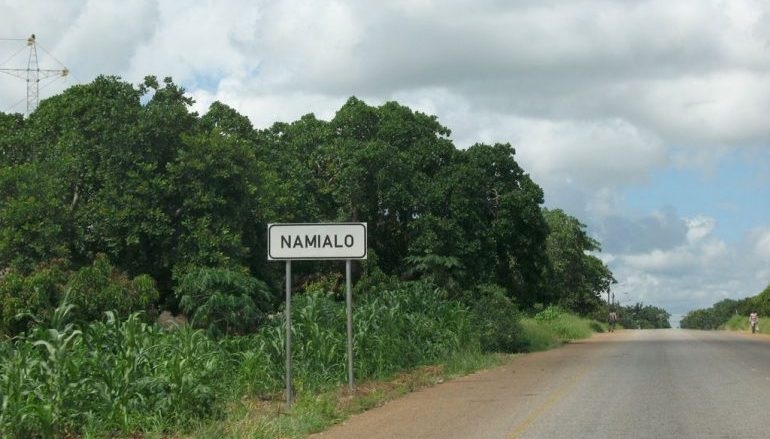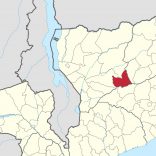Mozambique: 2/3 of health units without drinking water in one northern district
Arrival of Cabo Delgado displaced in Namialo: Shelter, food and COVID-19

in file CoM
They are the displaced of an undeclared war tearing at the social fabric of Cabo Delgado.
More than 600 are now in Namialo, in the province of Nampula, to where they fled in search of security, after experiencing the horrors of terrorism. But shelter, food and even water for them is lacking.
Ninety-five kilometres away from the city of Nampula lies the village of Namialo, in Meconta district, a destination for those leaving Cabo Delgado for Nampula by road, and known to many of the “war-displaced” because it has a community of former Makonde combatants [in the liberation struggle] .
Silence, calm, peace and quiet are all they want, but more than 600 people have left the northern districts of Cabo Delgado in the two and a half years of undeclared war.
The mass movement of the population began in early April, after attacks by the terrorists on the villages of Mocímboa da Praia, Muidumbe, Macomia and Quissanga intensified.
Teresa Maurício is 30 years old, seven months pregnant, and already the mother of three. She managed to escape from Muidumbe with her family, but cannot erase the memories of the events of Mozambican Woman’s Day.
“They entered on the 7th of April and we went into the bush until the 11th. On the 12th we left the house. I was with my children all these days in the bush. It rained and we got wet.”
The terrorists killed a teacher in the village.
Teresa’s husband. Tadeu Romão, is 34 years old. He says that what is happening in Cabo Delgado has only one name. “We, the people who got out of there, are war survivors.”
Now they wage another war for survival. They rented a house in Namialo for 1,000 meticais, but they don’t know how they will pay at the end of the month, because none of them has work.
More displaced people arrive every day. There are 19 people staying in one of the ramshackle houses, and the situation is degrading. The days are particularly difficult, with eating a challenge. Sleep is difficult, too, with strangers of all ages living together.
Vitória Modesto escaped attacks in April and May. “They entered on the 7th of April, at 7:00 a.m.. I even left a chicken in the house, because it was Woman’s Day. I ran away into the bush with my children, where we stayed a week. Then I went back and got ready to go to Mengueleua. But the same thing happened in Mengueleua. On May 11th, at 4:00 a.m., the al-Shabaab came into the town.”
Many of the displaced are women and children. Some don’t know where their relatives are, having all dispersed willy-nilly into the bush during the attacks.
And administrators of Namialo say that the arrival of displaced people from Cabo Delgado poses a major challenge, both as regards supplies and controlling Covid-19.
When the displaced persons started to arrive, the National Institute for Disaster Management(INGC) and government partners found themselves in the position of providing shelter and food to those affected.“We are now focused on those 600, to whom we already given some foodstuffs, clothing, hygiene supplies, and who are now receiving materials for shelters,” head of the Namialo Administrative Post, Adelina Mucala, says.
At this time in the fight against Covid-19 – given that Cabo Delgado province has the highest number of cases at nationally – the authorities in the administrative post say that they are emphasising the observation of preventative measures.
“What we do, whenever we are told that they have new arrivals (from Cabo Delgado), is call on an already formed team where one of the members is a health technician. They do their job, and we have been making follow-up visits as far as concerns Covid-19. Two weeks later, we give another type of assistance,” Mucala explains.
But many of the displaced are not wearing mask or observing the recommended social distancing, which is anyhow quite impractical given the conditions in they are living.
By Ricardo Machava












Leave a Reply
Be the First to Comment!
You must be logged in to post a comment.
You must be logged in to post a comment.